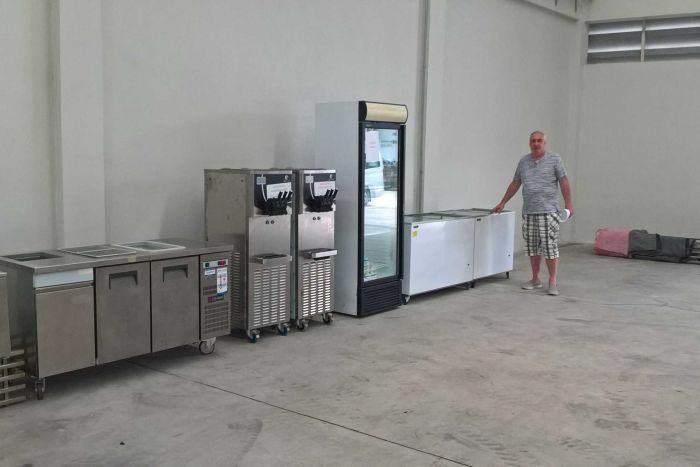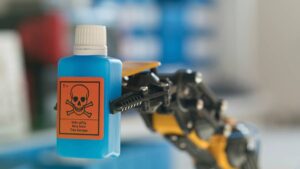No more fake ice cream and Hell’s Angels news from this ASX company

The door has closed on one of the most controversial companies on the ASX, after the company formerly known as LWP Technologies was forcibly delisted from the ASX.
LWP, since renamed Tillegrah (ASX:TIH), was delisted after being inactive on the market for two years.
The company is infamous for an alleged association with the Hells Angels, a graphene battery business that labelled ice-cream machines as scientific equipment, and fake Russian scientists.
From fly-ash to froyos
LWP won over investors in 2015, promising a novel fly-ash proppant — tiny ceramic balls in a liquid that’s flushed down a well to keep cracks open and let oil and gas escape — would be a game changer for the shale oil and gas industry.
It was worth $40m in mid-2015.
But problems began to arise not even 12 months in when the company was pinged by the ASX for issuing shares to chairman Siegfried Konig’s two daughters and CEO Sean Corbin’s son, without asking shareholders first.
Then the company took a very strange turn.
In June 2016, before commercialising its proppant, it invested in a “groundbreaking” graphene battery technology sold to them by Victor Volkov, a man who claimed to be a Russian scientist.
Shareholders began researching the deal. They debunked Volkov’s claims of being part of the team that created the technology, and discovered the LWP board had not sighted the technology they were buying into, according to emails seen by Stockhead.

Three months later LWP cancelled the deal, but not before handing over $770,000 and 30 million shares.
LWP sued Volkov and his VVV Technologies in January 2017, alleging there were questions over who owned the patents for the graphene battery and mismanaged funds.
But Volkov won, after a paperwork bungle was uncovered that showed Konig and Corbin were not legally allowed to issue the shares that were part of the deal.
Police Ten 7, corporate edition
Late last year and under pressure from LWP shareholders, Brisbane police sought a warrant for Volkov and filed money laundering charges against his son Vadim Volkov, a 37-year-old alleged patched member of the Hells Angels, for his part in the graphene battery scam.
In a statement, detectives accused the pair of passing themselves off as Russian scientists and sending ice cream machines to Thailand which they claimed was scientific lab equipment. They allege the money received was not used to invest in any battery development, but for the pair’s personal use.
“We will allege this was a scam investment with the offenders making several false claims to deceive investors,” detective acting superintendent Vince Byrnes, of the State Crime Command’s Financial and Cyber Crime Group, said in a statement last year.
‘Not our problem’
The police charges are cold comfort to shareholders who have lost everything and feel abandoned by the corporate regulator.
A group led by major LWP investor Brad Chapman has been driving scrutiny of the company, which changed its name in January 2019.
Chapman engaged the help of Liberal MP Steve Irons and pointed out irregularities to ASIC and the ASX such as those related party transactions, claims around future R&D tax refunds, and an ASX statement in 2017 claiming an independent test had been run on the proppant that had to be retracted the same day as the tester was revealed to in fact be LWP’s former chief scientist, among others.
In November 2019, ASIC told Minister for Financial Services Jane Hume that it had investigated the company since February 2018 and hadn’t found anything to warrant further action, according to a letter from Hume to Irons seen by Stockhead.
Related Topics
UNLOCK INSIGHTS
Discover the untold stories of emerging ASX stocks.
Daily news and expert analysis, it's free to subscribe.
By proceeding, you confirm you understand that we handle personal information in accordance with our Privacy Policy.








